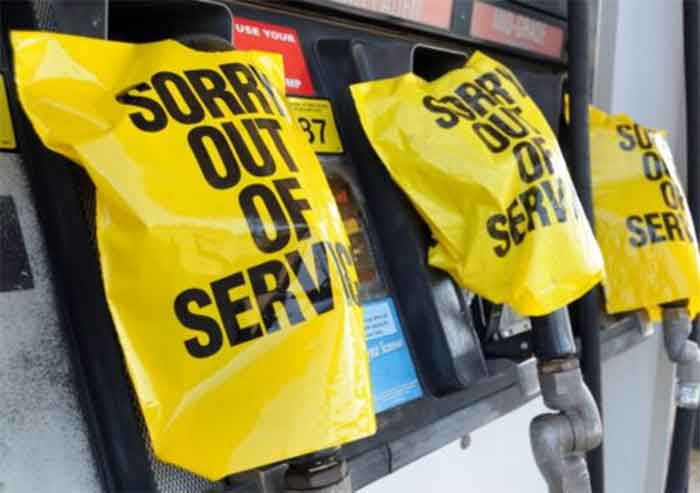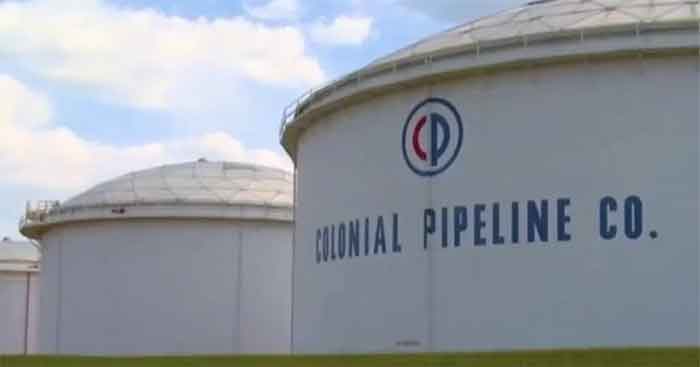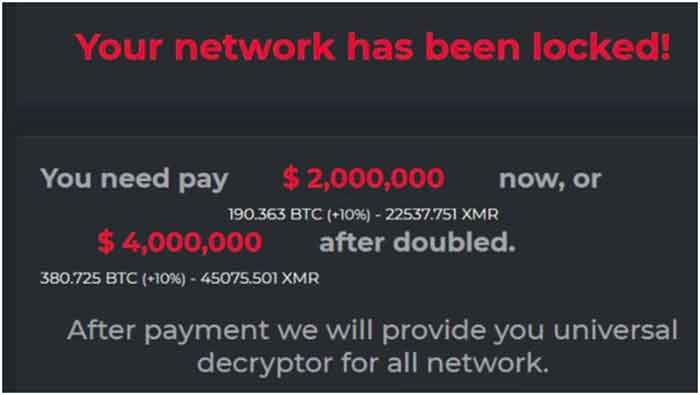
Gas (fuel) outages are spreading across the U.S. Southeast as motorists rush to fill up their cars days after the biggest U.S. fuel pipeline temporarily shut down following a cyberattack. Gas stations in Georgia, North Carolina and Tennessee were seeing some panic buying, said Patrick De Haan, head of petroleum analysis at GasBuddy.
Virginia and Florida declared a state of emergency on Tuesday, following North Carolina’s declaration the day before, as the disruption in pipeline operations led to over 1,000 gas stations across a dozen states to run out of fuel, according to S&P’s Oil Price Information Service.
In an effort to get fuel from the refineries in Texas to customers across the southeast U.S., the Department of Transportation’s trucking regulator, Federal Motor Carrier Safety Administration, has declared a regional emergency in 17 states and the Washington DC.
While industry experts try to reassure the public, saying hoarding or stockpiling gas will only exacerbate the issue, drivers appear to be panicking. The governor of Georgia also issued state of emergency.
A manager of a Shell gas station in Robbinsville, N.C., told referred to Gov. Roy Cooper’s (D-NC) executive order on Monday. “We got an email saying that it could be without gas [for] extended periods of time because of the pipeline shut down.”
The worst of it appears concentrated in Virginia where 7.6% of stations are out of gas; North Carolina where 7.5% of stations have run out; and Georgia where 5.2% of stations are reportedly empty as of Tuesday afternoon, according to Patrick De Haan, head of petroleum analysis at GasBuddy.
Gas demand across the U.S. jumped nearly 20% week over week on Monday, with a more than a 40% increase in Georgia, Florida, South Carolina, North Carolina, and Virginia. The national average hit $2.97 per gallon, matching the highest since 2018, GasBuddy found.
The volume of those desperate to fill up their tanks is also overwhelming GasBuddy, an app used to find gas. As of Tuesday morning, a company spokesperson announced it was powering down “non-vital services” to accommodate the “intense traffic.”
The scramble for fuel comes after the Colonial Pipeline, which moves fuels including gasoline, diesel and jet fuel, halted delivery over the weekend after a ransomware hack by a DarkSide, a criminal network. The ransomware attack on Friday forced Colonial to shut down a 5,500-mile carrying over 100 million gallons per day from Texas all the way to New York. The FBI has blamed ‘DarkSide,’ a group of criminal hackers, but the U.S. corporate media have accused of being ‘Russian-speaking.’ The group did not admit to the attack, but issued a statement on Monday insisting they were “apolitical” and just out to “make money.” Colonial on Friday shut its 5,500-mile (8,850-km) pipeline network to protect its systems.
Ransomware is a type of malware designed to lock computers by encrypting data. The hackers demand payment to let the owner regain access. It is unknown how much money the hackers are seeking, and Colonial has not commented on whether it would pay.
Colonial has yet to announce when its mainline will be fully operational. The affected pipeline runs from Texas to New York and delivers about 45% of all fuel to the East Coast.
Photos and reports from the Southeast are flooding Twitter, showing long stretches of cars waiting for turns at the pump with some drivers bringing gas containers.
No shortage, insists White House
Motorists and even airlines struggled to find fuel across the southeastern U.S. due to the Colonial Pipeline cyberattack, but the Biden administration denied there was a “shortage” and blamed “hoarders” for the “supply crunch.”
As of Tuesday afternoon, 27% of stations in North Carolina’s Greenville/Spartanburg/Anderson metro area were dry, according to GasBuddy, an app helping motorists find deals at the pump. So were 31% of pumps in Raleigh and 29% in Charlotte. Atlanta, Georgia reported a 30% outage as well. GasBuddy crashed repeatedly on Tuesday due to surging demand.
The New York Times claimed that since the pipeline’s shutdown due to a ransomware attack, “there have been no long lines or major price hikes for gas.”
Photographic evidence shared on social media indicated otherwise.
Energy Secretary Jennifer Granholm insisted the East Coast was not facing a “gasoline shortage” but rather a “supply crunch.”
“We know that we have gasoline; we just have to get it to the right places,” Granholm told reporters at the White House on Tuesday. She said there was “no cause for hoarding gasoline” and compared it to “hoarding toilet paper at the beginning of the pandemic.”
The Colonial Pipeline will be “substantially operational by the end of this week and over the weekend,” Granholm said. Colonial said on Sunday that it would bring the system back online “only when we believe it is safe to do so” and with approval of federal regulators.
Citing a shipper bulletin, the American Automobile Association (AAA) reported that Citgo has run out of premium reformulated fuel at its Fairfax, Virginia terminal, while the Richmond one was out of unleaded regular.
The AAA said the national average gasoline price climbed to $2.96 a gallon and could climb to its highest level since 2014.
American Airlines has made changes to two flights originating from Charlotte due to shortages, forcing passengers bound for Hawaii to change planes in Dallas, and those en route to London to make a refueling stop in Boston. Southwest and United began carrying extra fuel on flights to Nashville and Baltimore, in case they ran into shortages.
Fuel from Europe
U.S. fuel importers are booking tankers to bring gasoline from Europe.
U.S. refiners including Motiva Enterprises and Total cut output at Gulf Coast plants on Monday because of a lack of transport.
One of the most disruptive digital ransom schemes
On May 10, 2021, a Reuters report said:
The attack on the Colonial Pipeline, which carries nearly half the fuel consumed along the U.S. East Coast, is one of the most disruptive digital ransom schemes ever reported.
While the impact remains to be quantified, the pipeline shutdown will reduce fuel availability in the near term, push up prices and force refiners to cut production because they have no way to ship the gas.
U.S. President Joe Biden said there was no evidence thus far that Russia’s government was involved.
Anne Neuberger, U.S. deputy national security adviser for cybersecurity, told reporters that the Biden administration is not offering advice on whether Colonial should pay the ransom.
The episode laid bare the vulnerabilities of energy infrastructure to hackers. U.S. lawmakers responded with calls for stronger protections for critical energy infrastructure.
Colonial restarted some smaller lines on Sunday between fuel terminals and customer delivery points, releasing fuel stored locally to customers. On Monday, it also began manually operating its 700,000-barrel-per-day multi-product fuel line between Greensboro, North Carolina, and Maryland for a limited time while it has existing inventories.
But its main lines remained shut, and an alternative, smaller conduit operated by Kinder Morgan Inc serving the same region reached capacity.
The outage hit ahead of the summer vacation season, when gasoline demand and airline travel tend to peak.
In Georgia, trucking company owner Marcus Blash worried because his business cannot store fuel on site to hedge against price surges.
Florida resident Katina Willey went to several gas stations before she found one that had fuel available. “There were lines at three of the five stations I tried,” she said.
UN Secretary-General
A spokesman for United Nations Secretary-General Antonio Guterres said the attack showed that UN member states needed to combat cybercrime to avoid a “devastating impact on the world that we all live in.”
Aim is cash, not chaos
The ransomware gang accused of crippling the leading U.S. fuel pipeline operator said on Monday that it never meant to create havoc, an unusual statement that experts saw as a sign the cybercriminals’ scheme had gone awry.
A terse news release posted to DarkSide’s website did not directly mention Colonial Pipeline but, under the heading “About the latest news,” it noted, “our goal is to make money, and not creating problems for society.”
The statement did not say how much money the hackers were seeking. Colonial Pipeline did not offer any comment on the hackers’ statement and U.S. officials have said they have not been involved in ransom negotiations.
The hackers did not respond to Reuters requests for comment.
The FBI, Department of Energy and White House have all been involved in a rapid response to the hack, and a server used by the gang was shut down over the weekend.
A person familiar with the matter said on Monday that the server held Colonial data and also files stolen in other DarkSide ransomware operations in progress, and that some of the group’s other victims were in the process of being notified.
DarkSide’s statement went on to say that its hackers would launch checks on fellow cybercriminals “to avoid consequences in the future.” It added the group was “apolitical” and that observers “do not need to tie us” with any particular government.
The statement, which had several spelling and grammatical errors, appeared geared toward lowering the political temperature around one of the most disruptive digital extortion schemes ever reported.
On Sunday the largest U.S. refinery, Motiva Enterprises LLC’s 607,000 barrel-per-day (bpd) Port Arthur, Texas, refinery, shut two crude distillation units because of the outage at Colonial, according to people familiar with the matter.
Some security experts said the DarkSide hackers were now trying to put some distance between themselves and the chaos they had unleashed.
There is evidence that the DarkSide group operates out of Russia, U.S. President Joe Biden told reporters on Monday. He said that while there was “so far” no evidence that the Russian government was involved, “they have some responsibility to deal with this.”
GET COUNTERCURRENTS DAILY NEWSLETTER STRAIGHT TO YOUR INBOX













































